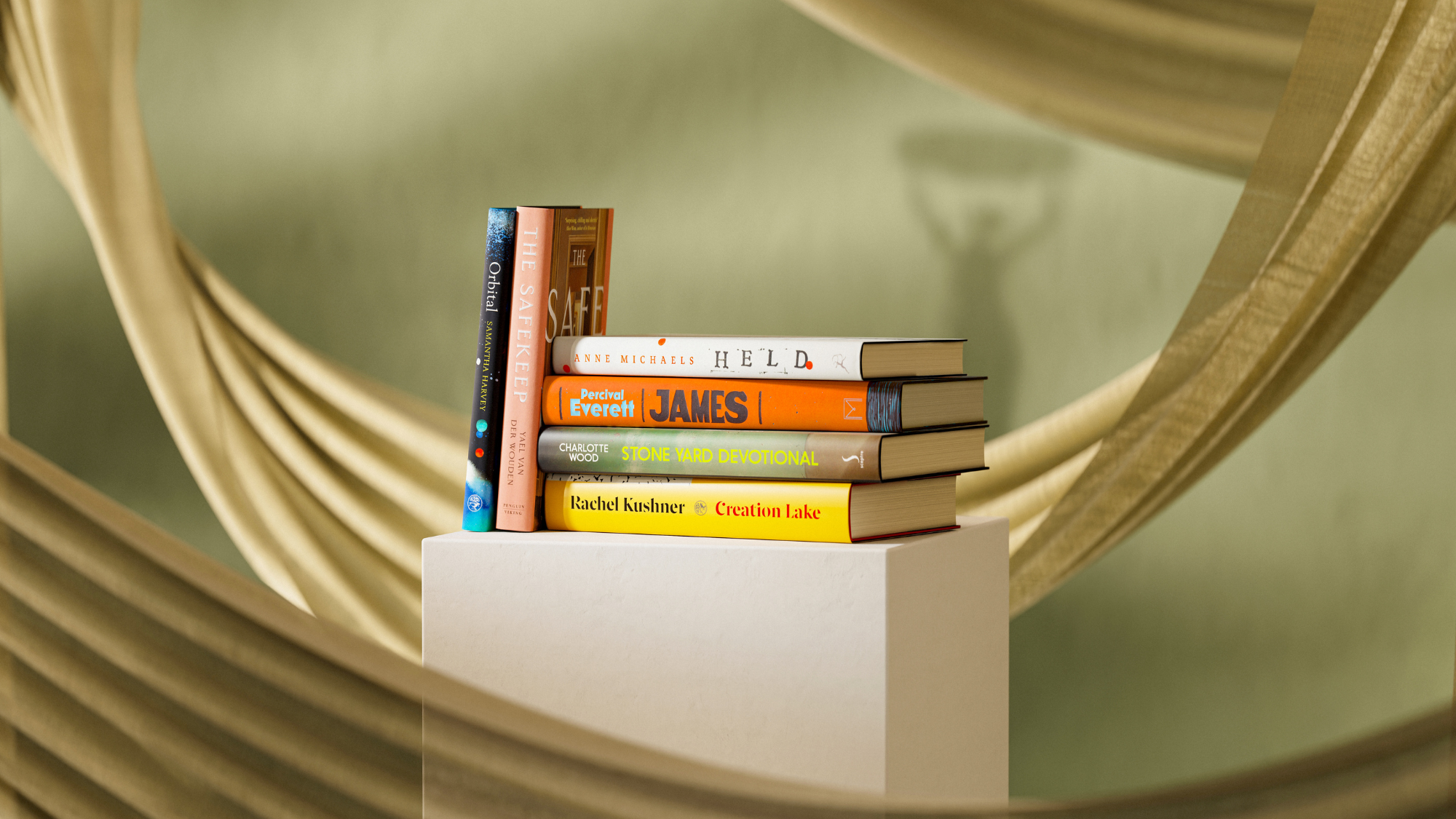Female authors light up the Booker Prize shortlist
This year's writers have tackled wide-ranging subjects from espionage to space travel

A free daily email with the biggest news stories of the day – and the best features from TheWeek.com
You are now subscribed
Your newsletter sign-up was successful
This year's Booker Prize shortlist features more women than ever before, and "it's the strongest in years", said Johanna Thomas-Corr in The Times.
Five of the six books to make "the cut" are written by female authors – a stark departure from last year's list that saw men with the name Paul (Paul Murray, Paul Harding and Paul Lynch) outnumber women.
It's an "impressive" list and each of the shortlisted novels is "extremely varied in subject matter, perspective and narrative techniques". From an "unconventional espionage" tale to a "psychosexual thriller", the books themselves deserve to capture attention, instead of any "meta-debates" about gender and representation.
The Week
Escape your echo chamber. Get the facts behind the news, plus analysis from multiple perspectives.

Sign up for The Week's Free Newsletters
From our morning news briefing to a weekly Good News Newsletter, get the best of The Week delivered directly to your inbox.
From our morning news briefing to a weekly Good News Newsletter, get the best of The Week delivered directly to your inbox.
It's a shortlist that is "provocative, intellectually capacious and often wildly entertaining to boot", added Claire Allfree in The Telegraph.
Orbital, Samantha Harvey
Samantha Harvey was the only British writer to make the shortlist with her "bewitching" novella "Orbital", which follows the lives of a group of astronauts on the International Space Station, said Allfree.
There is something "pleasingly anti-parochial" about the sole British author in the final six writing "the most un-British of books" set 250 miles from Earth, added Thomas-Corr.
Creation Lake, Rachel Kushner
"A philosophical novel of ideas wrapped up in a spy caper", "Creation Lake" follows an American secret agent as she infiltrates a commune of eco-activists in rural France, said Justine Jordan in The Guardian.
A free daily email with the biggest news stories of the day – and the best features from TheWeek.com
Kushner plays a "joyful game of cat-and-mouse with the reader", said The Telegraph's Allfree, using the spy's "wisecracking cynicism" to skewer the "superficiality of contemporary activism". Both "smart and funny", "you can see the case for her winning this year".
Held, Anne Michaels
The most "formally experimental" book on the list comes from Anne Michaels, said The Telegraph. "Held" presents a "series of snapshots" of characters "bedevilled by war and tyranny but finding consolation in love".
An "extraordinary reading experience", said Jordan, the "spare and elliptical" book "alights" on a collection of "intense" stories, spanning several generations.
Stone Yard Devotional, Charlotte Wood
The first Australian novel to make the Booker Prize shortlist in just under a decade, this tale about a conservationist living among nuns in a monastery in New South Wales is an "austere, enigmatic story", wrote Thomas-Corr in The Times.
Wood's "cool and carefully balanced" sentences and "sly humour" draw the reader in, added Orlando Bird in The Telegraph, and her book is "all the more accomplished" for embracing mysteries while "resisting neat conclusions".
The Safekeep, Yael van der Wouden
Set in the Netherlands in the early 1960s, this "brave and thrilling debut" follows a "buttoned-up" young woman who undergoes an "erotic awakening" when her brother's Jewish girlfriend comes to stay, said Jordan in The Guardian. A "page-turner about trauma and repression", Van der Wouden brings "stunning power and control" to her novel.
With the "pacing and twists of a thriller", wrote The Times' Thomas-Corr, the book "explores the legacy of the Holocaust" and "asks tough questions about Dutch history".
James, Percival Everett
"Combining vertiginous comedy with stylistic bravado", Everett reimagines Mark Twain's "The Adventures of Huckleberry Finn" from the perspective of the enslaved Jim, said Allfree in The Telegraph. The way he "compresses, subverts and enlarges Twain’s classic" is "clever and exciting", added Thomas-Corr in The Times.
The only entry by a man to make the list, Everett's "ferociously readable" "James" feels like "the book he was born to write", said Jordan in The Guardian.
Irenie Forshaw is the features editor at The Week, covering arts, culture and travel. She began her career in journalism at Leeds University, where she wrote for the student newspaper, The Gryphon, before working at The Guardian and The New Statesman Group. Irenie then became a senior writer at Elite Traveler, where she oversaw The Experts column.